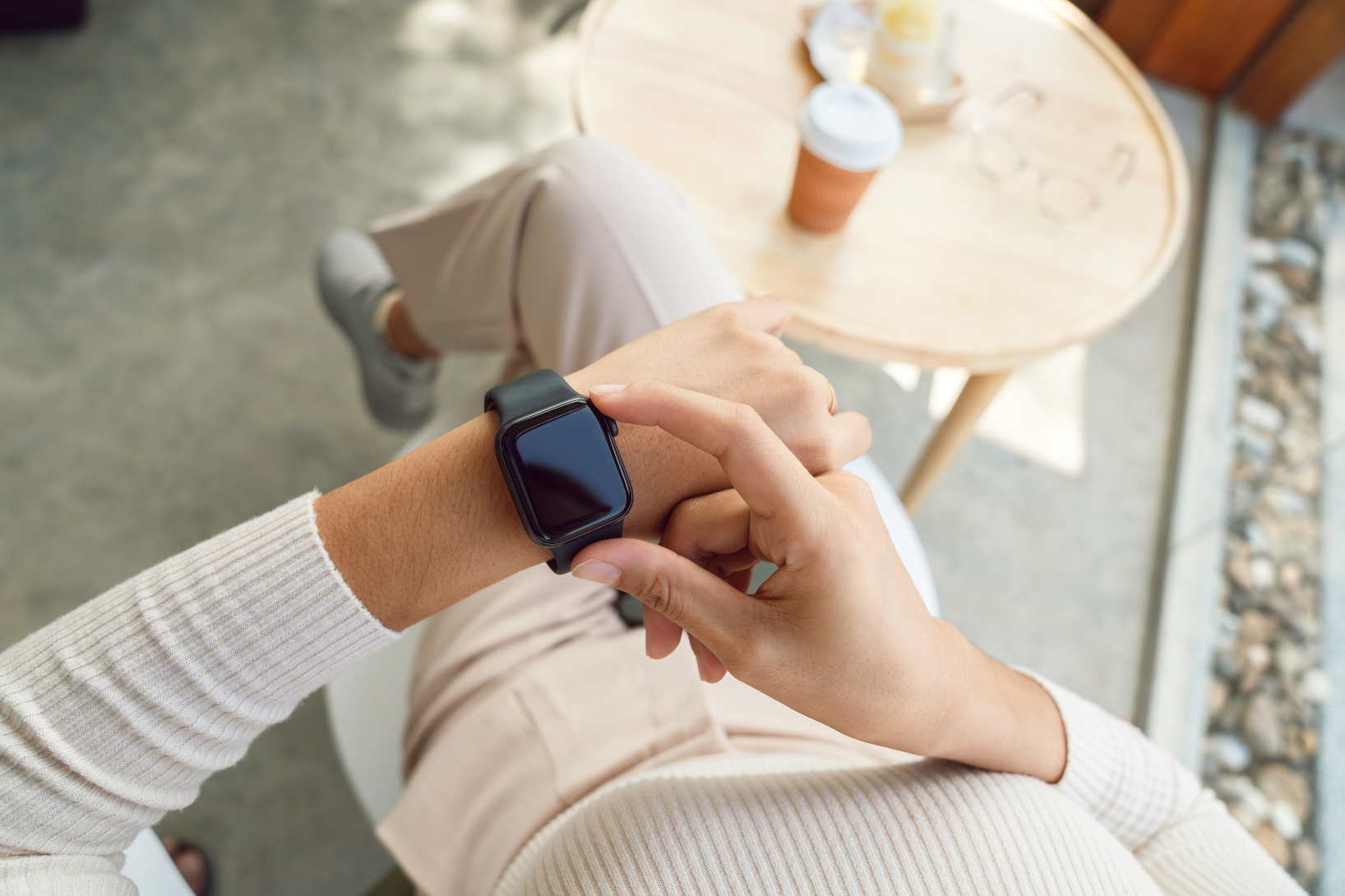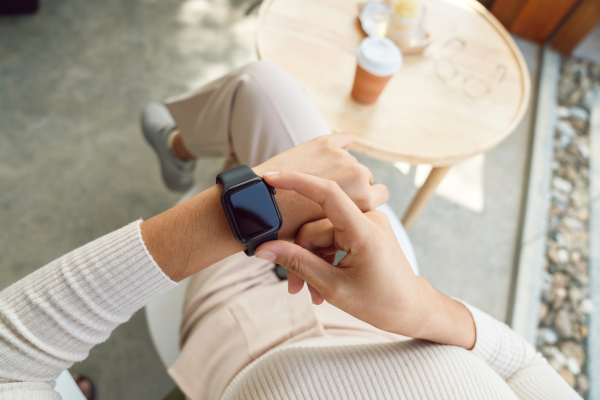What Are Wearables and How Are They Used in Clinical Trials?
Wearable technology is transforming clinical trials by making it easier than ever to collect real-time health data from participants. These devices—ranging from fitness trackers and smartwatches to advanced biosensors—give researchers continuous, objective insights into a patient’s health without requiring frequent site visits or self-reported data.
You’re probably familiar with consumer wearables like Apple Watch or Fitbit, which track steps, heart rate, and sleep patterns. But in clinical research, wearable technology goes much further. Advanced biosensors can monitor glucose levels, oxygen saturation, stress indicators, and even detect early signs of health complications. This kind of real-time data isn’t just convenient—it’s a game-changer for trial accuracy and efficiency.
These devices fall under the umbrella of Digital Health Technologies (DHTs), a category the FDA actively monitors to ensure wearable-generated data meets high standards for accuracy, security, and reliability. As regulations continue to evolve, the industry is working to standardize how wearables are validated and integrated into research.
Beyond making trials more efficient, wearable technology is also making them more accessible. By enabling remote participation, wearables help remove barriers for people who live far from trial sites or have mobility challenges. That means more diverse trial populations, better data, and ultimately, more effective treatments. As technology continues to evolve, wearables are set to play an even bigger role in shaping the future of clinical research.
Exciting Innovations Shaping the Future of Wearables
Wearable technology in clinical trials is evolving fast, and the next generation of devices is set to go far beyond simple step tracking and heart rate monitoring. Thanks to advancements in AI, biosensors, and real-time data analytics, these devices are becoming smarter, more intuitive, and more capable of delivering insights that could transform how we conduct research and care for patients.
Smarter Devices Powered by AI
Artificial intelligence (AI) is supercharging wearable technology by making devices more responsive and insightful. Instead of just collecting raw data, AI-powered wearables can analyze trends, flag anomalies, and even predict potential health risks before they become serious. For example, AI can help detect early signs of atrial fibrillation or stress-related conditions by continuously analyzing heart rate variability. This type of proactive monitoring could help researchers intervene faster, improving patient safety and the overall quality of trial data.
New Biosensors That Go Beyond the Basics
Next-generation biosensors are pushing the limits of what wearables can measure. While today’s devices track movement and vital signs, future wearables may be able to monitor hydration levels, stress hormones, inflammation markers, and even certain disease biomarkers in real time. These advancements could be particularly useful in trials for conditions like diabetes, cardiovascular disease, or autoimmune disorders, where continuous biological monitoring is crucial for understanding treatment effects.
Real-Time Feedback and Advanced Data Tools
One of the biggest advantages of wearables in clinical trials is the ability to collect and analyze data in real time. Advanced data analytics platforms are making it easier to process massive amounts of wearable-generated data quickly, allowing researchers to adjust trial protocols on the fly. If a participant’s data shows signs of noncompliance or an adverse reaction, researchers can step in immediately rather than waiting for the next scheduled visit.
With these innovations, wearable technology is set to play an even bigger role in clinical trials, making studies more efficient, patient-friendly, and data-driven than ever before.
How Wearable Technology Is Making Trials Better for Everyone
Wearable technology isn’t just making clinical trials more efficient—it’s also making them more accessible, accurate, and patient-friendly. By reducing the burden on participants and improving data collection, these devices are helping clinical research evolve into something more inclusive and effective.
Opening the Door to More Participants
One of the biggest challenges in clinical trials is recruitment. Many people who could benefit from participating simply can’t due to location, mobility issues, or time constraints. Wearables are changing that by enabling remote participation.
- No more constant site visits: Patients can contribute data from the comfort of their homes.
- Better access for diverse populations: People in rural or underserved areas can join studies without needing to travel.
- Increased retention: With fewer disruptions to their daily lives, participants are more likely to stay engaged throughout the trial.
By making trials more accessible, wearables are helping researchers recruit a broader, more representative patient pool—leading to better data and more generalizable results.
Collecting Better, Faster, and Smarter Data
Traditional clinical trials rely heavily on periodic site visits and self-reported data, which can introduce gaps or inaccuracies. Wearables provide a solution by capturing continuous, real-time data that researchers can analyze instantly.
- More accurate insights: No more relying on participants to recall symptoms or behaviors weeks later.
- Faster decision-making: Real-time data allows researchers to identify trends and make adjustments quickly.
- Less paperwork, more automation: Wearable data can be seamlessly integrated into trial platforms, reducing administrative burdens.
This shift means more efficient trials, quicker results, and ultimately, faster delivery of new treatments to patients.
Helping Us Move Toward Truly Personalized Medicine
Wearables aren’t just collecting more data—they’re collecting better, more individualized data. By continuously monitoring a patient’s unique health patterns, these devices pave the way for personalized treatment approaches.
- Adaptive trial designs: Researchers can tailor interventions based on real-time patient responses.
- Precision medicine advancements: Data from wearables can help identify which treatments work best for specific patient populations.
- Improved patient outcomes: By understanding individual variations, clinical trials can move beyond one-size-fits-all approaches to more customized care.
With these capabilities, wearable technology is driving a shift toward clinical trials that are not only more efficient but also more patient-centered. As adoption grows, expect to see even greater strides in making research faster, fairer, and more effective for everyone involved.
What the FDA Is Saying About Wearables in Trials
As wearable technology becomes more embedded in clinical trials, regulatory agencies like the FDA are stepping in to provide guidance on how these devices should be used. The goal? Ensuring that wearable-generated data is reliable, secure, and compliant with existing clinical research standards.
The FDA categorizes wearables under Digital Health Technologies (DHTs) and has issued guidance on how they should be evaluated for use in trials. Some key considerations include:
- Data accuracy & validation – Wearables must be rigorously tested to ensure they produce reliable, reproducible data.
- Patient privacy & security – Collected data must comply with regulations like HIPAA and GDPR to protect sensitive health information.
- Regulatory compliance – Sponsors must demonstrate that wearable data meets the same quality standards as traditional clinical trial data.
The agency has also emphasized the need for standardization, making it easier for trial sponsors to integrate wearables into studies without facing uncertainty about compliance. As regulations continue to evolve, the industry will need to stay agile, adapting to new frameworks that promote both innovation and patient safety.
For those interested in diving deeper, the FDA has published a set of guidelines on DHTs that outline best practices for incorporating wearable technology into clinical research. With clear regulatory direction, wearables are poised to become a mainstream tool in the future of clinical trials.
Challenges in Adopting Wearable Technology in Clinical Trials
While wearables offer huge advantages for clinical trials, integrating them isn’t without its challenges. From data security concerns to ensuring devices work seamlessly together, researchers must navigate several hurdles to maximize the benefits of wearable technology.
Protecting Privacy and Data Security
With continuous data collection comes the responsibility of safeguarding sensitive patient information. Wearables generate massive amounts of health data, raising concerns about who has access, how it’s stored, and how it’s protected. Regulations like HIPAA and GDPR set strict guidelines for data privacy, but ensuring compliance across different devices and platforms remains a challenge. Platforms like TrialKit help address this by offering secure, compliant solutions for wearable data management.
Making Sure Devices Work Seamlessly Together
Not all wearables speak the same language. Clinical trials often rely on multiple devices from different manufacturers, each with its own data format and connectivity requirements. Ensuring these devices integrate smoothly into a single research platform is crucial for consistency and usability. The industry is making strides in standardizing data formats, but seamless integration remains a key focus for trial sponsors and technology providers.
Navigating Regulatory Hurdles
As the FDA and other global agencies refine their guidance on Digital Health Technologies, trial sponsors must stay ahead of evolving regulations. Ensuring wearables meet compliance standards across multiple regions can be complex, requiring careful planning and ongoing monitoring of regulatory changes.
Despite these challenges, advancements in secure platforms, improved interoperability, and clearer regulatory guidelines are paving the way for widespread wearable adoption in clinical trials.
How TrialKit Is Leading the Way
Integrating wearable technology into clinical trials can be complex—but TrialKit makes it simple. As a leading clinical trial data platform, TrialKit is built to handle the unique challenges of wearable data collection, ensuring that clinical researchers can easily incorporate digital health technologies into their studies.
Here’s how TrialKit is setting the standard:
- Real-time data collection – Seamlessly integrates wearable data for instant access and analysis.
- Regulatory compliance – Designed to align with FDA guidelines for Digital Health Technologies, keeping trials on track.
- Interoperability – Supports multiple device types, ensuring smooth data integration from different wearables.
- Secure & scalable – Built-in data encryption and privacy controls ensure patient data stays protected while allowing studies to scale.
Developed by Crucial Data Solutions, TrialKit is helping researchers move beyond traditional data collection methods and fully embrace the potential of wearables. Whether it’s remote monitoring, decentralized trials, or advanced analytics, TrialKit is empowering clinical teams to run smarter, more efficient studies with wearable technology at the core.
The Future of Wearable Technology in Clinical Trials
Wearable technology is on the brink of transforming clinical research as we know it. With AI-driven insights, next-gen biosensors, and real-time data analytics, these devices are making trials more efficient, more inclusive, and more patient-friendly than ever before. As regulatory frameworks evolve and technology continues to advance, we can expect wearables to play an even bigger role in decentralized trials, personalized medicine, and faster drug development.
But unlocking the full potential of wearables requires the right technology platform—one that seamlessly integrates diverse data sources, ensures regulatory compliance, and enables real-time decision-making. That’s where TrialKit comes in.
With TrialKit, researchers can:
- Streamline wearable integration for a frictionless data flow.
- Ensure compliance with FDA guidance on Digital Health Technologies.
- Access real-time insights to make faster, more informed trial decisions
- Protect patient data with industry-leading security measures.
The future of clinical trials is wearable, digital, and data-driven—and TrialKit is leading the way. Ready to see how TrialKit can transform your studies? Learn more today and take your clinical research to the next level.
FAQs About Wearable Technology in Clinical Trials
What are wearables in clinical trials?
Wearables are digital health devices like smartwatches, fitness trackers, and biosensors that collect real-time patient data during clinical trials. They track vital signs, activity levels, and other health metrics to improve data accuracy and trial efficiency.
How do wearables improve clinical trials?
Wearables provide continuous, real-time data, reducing the need for manual reporting and frequent site visits. This makes trials more efficient, more patient-friendly, and faster to generate insights.
What role does the FDA play in regulating wearables?
The FDA provides guidance on Digital Health Technologies (DHTs) to ensure wearable-generated data is accurate, secure, and compliant with clinical research standards.
What types of data can wearables collect in trials?
Wearables track a range of health metrics, including:
- Biomarkers for specific conditions
- Heart rate & blood pressure
- Activity & sleep patterns
- Glucose levels & oxygen saturation
Are wearables secure for use in clinical trials?
Yes—when used with secure platforms like TrialKit, which ensures data encryption, regulatory compliance, and patient privacy protections.
How do wearables support decentralized clinical trials?
Wearables allow remote data collection, enabling participants to contribute data from home. This reduces travel burdens, increases retention, and broadens trial accessibility.
What challenges come with using wearables in trials?
Key challenges include data security, device compatibility, and regulatory compliance. Platforms like TrialKit address these issues with seamless integration, built-in compliance tools, and secure data management.
How will wearables shape the future of clinical trials?
With AI, advanced biosensors, and improved connectivity, wearables will make trials more accurate, more personalized, and more efficient—leading to faster breakthroughs in medicine.



